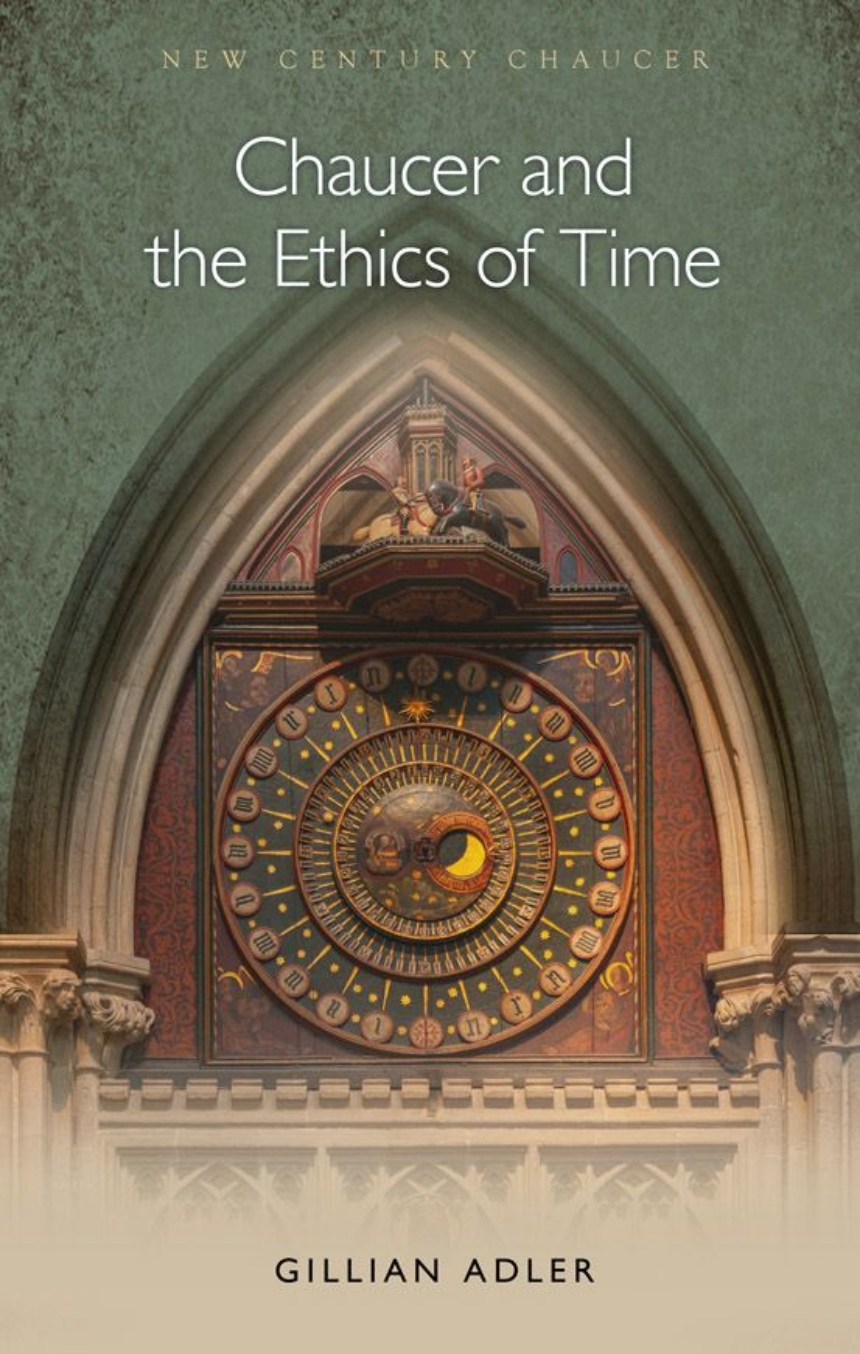Distributed for University of Wales Press
Chaucer and the Ethics of Time
A study of time in Chaucer’s major works.
Geoffrey Chaucer wrote at a turning point in the history of timekeeping, but many of his poems demonstrate a greater interest in the moral dimension of time than in the mechanics of the medieval clock. Chaucer and the Ethics of Time examines Chaucer’s sensitivity to the insecurity of human experience amid the temporal circumstances of change and time-passage, as well as strategies for ethicising historical vision in several of his major works. While wasting time was occasionally viewed as a sin in the late Middle Ages, Chaucer resists conventional moral dichotomies and explores a complex and challenging relationship between the interior sense of time and the external pressures of linearism and cyclicality. Chaucer’s diverse philosophical ideas about time unfold through the reciprocity between form and discourse, thus encouraging a new look at not only the characters’ ruminations on time in the tradition of St Augustine and Boethius, but also manifold narrative sequences and structures, including anachronism.
Geoffrey Chaucer wrote at a turning point in the history of timekeeping, but many of his poems demonstrate a greater interest in the moral dimension of time than in the mechanics of the medieval clock. Chaucer and the Ethics of Time examines Chaucer’s sensitivity to the insecurity of human experience amid the temporal circumstances of change and time-passage, as well as strategies for ethicising historical vision in several of his major works. While wasting time was occasionally viewed as a sin in the late Middle Ages, Chaucer resists conventional moral dichotomies and explores a complex and challenging relationship between the interior sense of time and the external pressures of linearism and cyclicality. Chaucer’s diverse philosophical ideas about time unfold through the reciprocity between form and discourse, thus encouraging a new look at not only the characters’ ruminations on time in the tradition of St Augustine and Boethius, but also manifold narrative sequences and structures, including anachronism.
Table of Contents
List of Abbreviations 6
Introduction 7
1 Elegiac Time and the Pleasure of Forgetting in the Book of the Duchess 34
2 Seeing Time and the Illusion of Control in Troilus and Criseyde 62
3 ‘What may ever laste?’: Narrativising Transience in the House of Fame 108
4 The Process of Time in the Parliament of Fowls137
5 Nonlinear Time in Chaucer’s Frame-Narrative and the Wife of Bath’s Prologue160
Conclusion187
Notes195
Bibliography233
Introduction 7
1 Elegiac Time and the Pleasure of Forgetting in the Book of the Duchess 34
2 Seeing Time and the Illusion of Control in Troilus and Criseyde 62
3 ‘What may ever laste?’: Narrativising Transience in the House of Fame 108
4 The Process of Time in the Parliament of Fowls137
5 Nonlinear Time in Chaucer’s Frame-Narrative and the Wife of Bath’s Prologue160
Conclusion187
Notes195
Bibliography233

